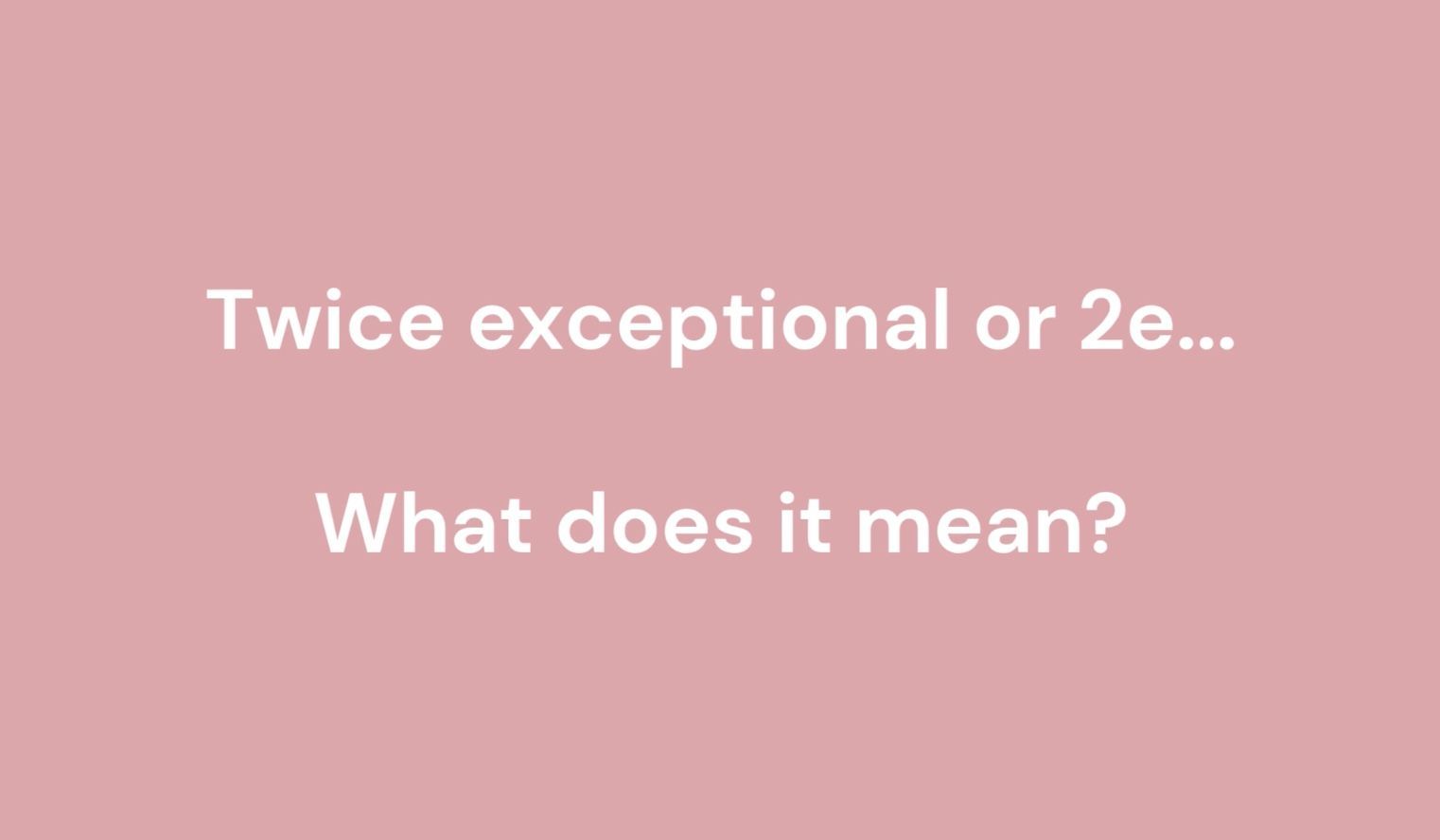Acceleration: Information Sheet For Parents
Is your child showing the ability to learn at a level above children of the same age? Have you ever wondered if they could have the opportunity to learn at their preferred level at school? You are not alone in thinking this. The practice of matching the level, complexity and pace of curriculum to the individual student by moving them through an educational program at a faster rate than usual, is known as acceleration (Salkind, 2008).
Decades of research show that thoughtful and carefully planned acceleration benefits a gifted student academically and does no harm socially or emotionally (Assouline et al., 2015a, 2015b; Colangelo et al., 2004a; Colangelo et al., 2004b; Culross et al., 2013; Feldhusen et al., 1986). However, acceleration is often underutilised by schools, largely due to many myths and beliefs that are simply unfounded (Gifted and Talented Association of Montgomery County, 2010, Feb 24).
There are many methods of acceleration (Department of Education, 2012; Ronksley-Pavia, 2011), some examples include:
- Grade-skipping, where one or more full grade levels are omitted, for example a student may move from grade 3 directly into grade 5
- Early entrance to school, where a student begins their schooling (usually Kindergarten) at a younger age than normal
- Grade telescoping where students work through the curriculum of two or more grades in less than the normal number of academic years
- Subject-based acceleration, where a student does the work of a higher grade level for a particular subject either:
- In their own classroom but working on higher grade material
- By attending a higher-grade classroom for that subject
- Through dual enrolment - also enrolling in a higher level of schooling for a particular subject, e.g. studying a university subject while still in high school
How do I know if grade or subject acceleration is a good choice for my child?
- For grade skipping, ideally you will need to have your child assessed by an educational psychologist who is skilled in working with gifted children. That person will administer an IQ test for your child and provide you with a report. The report may include recommendations for a subject acceleration or a grade skip.
- In general, grade skipping will require a full-scale IQ of 130 or more, with the student demonstrating advanced ability across all areas.
- Everyone involved - you, the school and your child should all be in favour of acceleration. In particular, the receiving teacher/s should be supportive and prepared to help the student settle into the new classroom and bridge any knowledge gaps they may have.
- Your child should be free of any major social and emotional problems and should be motivated and persistent in their approach to learning. Note that sometimes the school may perceive behaviour issues or failure to engage ‘normally’ with same age classmates as socially and emotionally immature and resist the idea of acceleration. The behaviour and ability to form relationships may well improve if the child is appropriately placed in a higher grade.
- The child should be in good health. A child’s physical size doesn't matter unless the child wishes to engage in competitive sport.
- A trial period in the proposed receiving year level is highly recommended to ensure the accelerated grade level is the correct placement.
How many grades should a child skip?
The child should be performing above the average of the class into which they accelerate. A trial process will help to clarify the appropriate placement. If the child is accelerated into a class and they are achieving at a level well above what is expected for that grade, the acceleration is unlikely to meet their needs academically, socially or emotionally.
When should a grade skip take place?
Ideally, at the end of a school year - but the move to the higher grade may also be considered at the end of a school term. Generally, it is advised to avoid skipping the ‘transition years’ - the years when a student may have the opportunity for student leadership roles or the first year of a new school structure that will have considerably different routines (eg, completing year 6 and year 7 are often seen as important).
Will a grade skip meet all my child’s needs?
Probably not! Your child may need additional acceleration - whether another grade skip or subject acceleration or more challenge provided by the classroom teacher of some subjects.
Can a grade skip be reversed?
A trial period of at least six weeks, with regular reviews involving all stakeholders (e.g., child, teachers, parents, senior staff, school psychologist) is recommended. If it is considered best for the child that they return to their original class, then that should happen and be supported in a positive way.
How will the school decide if my child may be accelerated?
The school should use an objective tool such as the Iowa Acceleration Scale to assist with making the acceleration decision. Decisions made should involve input from a team which ideally includes parents, current and receiving teachers, school leadership, educational psychologist and your child. A team approach based on solid evidence and research about the benefits of acceleration should form the basis of good decision making.
Will my child benefit from acceleration?
Extensive research shows that well planned and well supported acceleration for gifted students benefits those students academically in both the short term and the long term. Acceleration helps students stay engaged in school and develop essential skills to tackle more difficult learning material and cope with not succeeding the first time. Accelerated students often achieve more highly than students of the same age and ability who are not accelerated. They often achieve more highly than older students in the class into which they are accelerated.
Research also indicates that accelerated students cope socially and psychologically; often gifted learners are socially and emotionally more mature than same-age students and acceleration can provide access to classmates whose interests and stages of friendship development are closer to theirs.
References
Assouline, S., Colangelo, N., & VanTassel-Baska, J. (2015a).
A nation empowered: Evidence trumps the excuses holding back America’s brightest students (Vol. 1). The University of Iowa.
Assouline, S., Colangelo, N., & VanTassel-Baska, J. (2015b). A nation empowered: Evidence trumps the excuses holding back America’s brightest students (Vol. 2). The University of Iowa.
Colangelo, N., Assouline, S., & Gross, M. U. M. (2004a). A nation deceived: How schools hold back America's brightest students (Vol. 2). The University of Iowa.
Colangelo, N., Assouline, S., & Gross, M. U. M. (2004b). A nation deceived: How schools hold back America's brightest students (Vol. 1). The University of Iowa.
Culross, R. R., Jolly, J. L., & Winkler, D. (2013). Facilitating Grade Acceleration: Revisiting the Wisdom of John Feldhusen [Article]. Roeper Review, 35(1), 36-46. https://doi.org/10.1080/02783193.2013.740601
Department of Education, S. a. E. (2012). Gifted Education Professional Development Package. Canberra, Australia: Australian Government. Retrieved from https://www.dese.gov.au/collections/gifted-education-professional-development-package
Feldhusen, J. F., Proctor, T. B., & Black, K. N. (1986). Guidelines for grade advancement of precocious children [Article]. Roeper Review, 9, 25-27. https://doi.org/10.1080/02783198609553000
Gifted and Talented Association of Montgomery County. (2010, Feb 24). Top ten myths in gifted education [Video file]. https://youtu.be/MDJst-y_ptI
Ronksley-Pavia, M. (2011). A report on acceleration for the gifted: What does it mean? Gifted, February(159), 8-11.
Salkind, N. J. (2008). Acceleration. In N. J. Salkind (Ed.), Encyclopaedia of educational psychology (Vol. 1, pp. 4-8): Sage.
Disclaimer: The views and opinions expressed in this blog are those of the author and do not necessarily reflect the official policy or position of the AAEGT.
Share this resource
Resources












